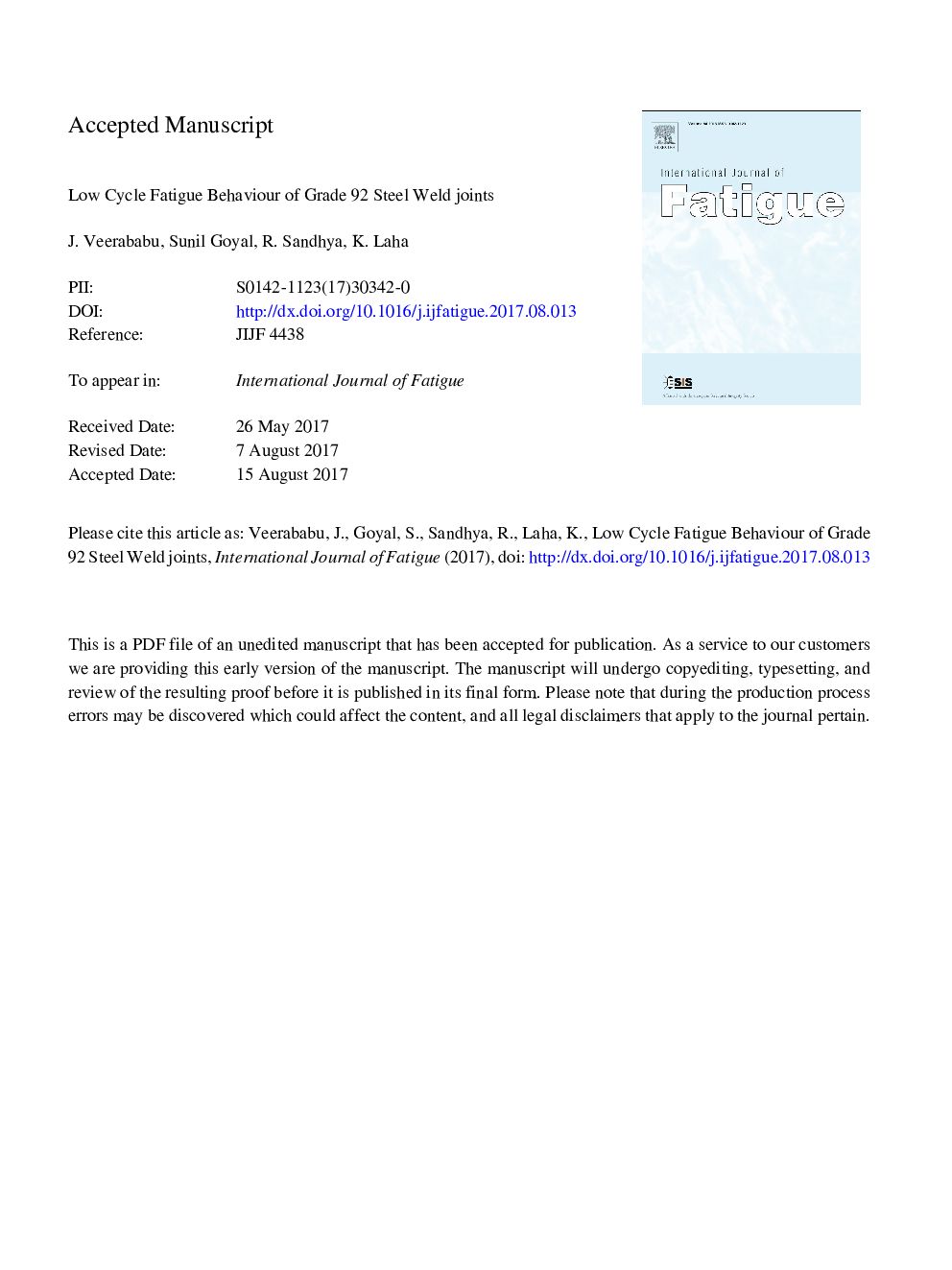| Article ID | Journal | Published Year | Pages | File Type |
|---|---|---|---|---|
| 5014909 | International Journal of Fatigue | 2017 | 27 Pages |
Abstract
In the present study, low cycle fatigue (LCF) behaviour of tungsten (W) alloyed 9Cr steel (Grade 92 steel) base metal and its weld joints has been investigated. LCF tests on both base metal and weld joint were conducted under fully reversed, total axial strain control mode employing a triangular waveform at 823 K, under a constant strain rate of 3 Ã 10â3 sâ1 with strain amplitudes varying from ±0.25% to ±1%. Both base metal and weld joint exhibited continuous softening with the weld joint exhibiting a lower stress response than base metal. At lower strain amplitudes, weld joint exhibited lower fatigue life than that of base metal whereas at higher strain amplitude, both the materials exhibited comparable fatigue life. Weld joints failed in the base metal for all the strain amplitudes at 823 K except at the strain amplitude ±0.25% where weld joint failed in inter-critical region. Effect of temperature on LCF behaviour of weld joints and base metal at various temperatures ranging from 300 K to 873 K under constant strain amplitude of ±0.6% and strain rate 3 Ã 10â3 has been investigated. At all the temperatures, weld joints failed in the base metal region. The material exhibited dynamic strain ageing phenomenon in the temperature range 473-673 K. Oxidation was found to show more adverse effects on fatigue life beyond 673 K.
Related Topics
Physical Sciences and Engineering
Engineering
Mechanical Engineering
Authors
J. Veerababu, Sunil Goyal, R. Sandhya, K. Laha,
